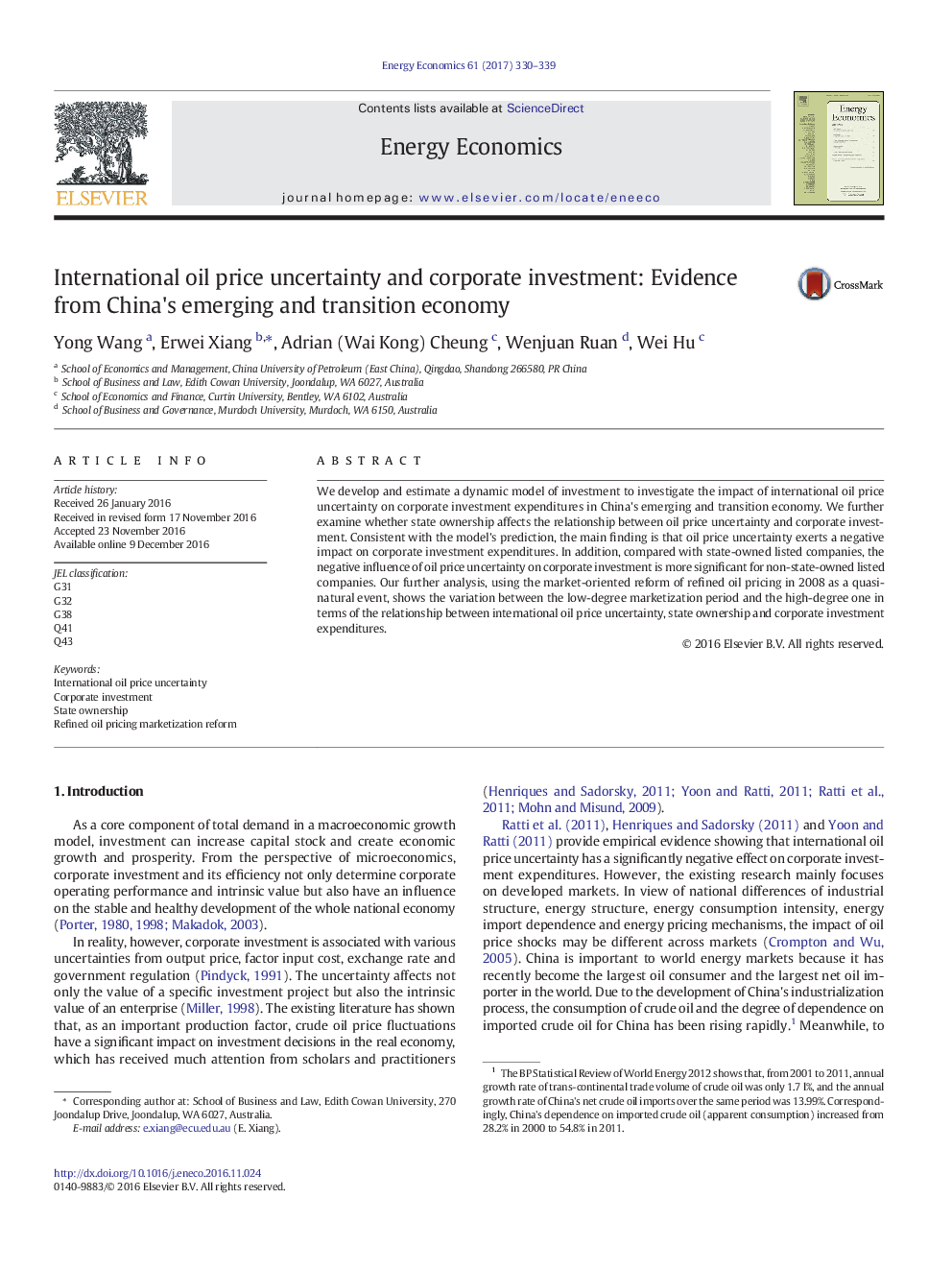ترجمه فارسی عنوان مقاله
عدم قطعیت قیمت بین المللی نفت و سرمایه گذاری شرکت ها: شواهد از اقتصاد نوظهور و گذار چین
عنوان انگلیسی
International oil price uncertainty and corporate investment: Evidence from China's emerging and transition economy
| کد مقاله | سال انتشار | تعداد صفحات مقاله انگلیسی |
|---|---|---|
| 97259 | 2017 | 10 صفحه PDF |
منبع

Publisher : Elsevier - Science Direct (الزویر - ساینس دایرکت)
Journal : Energy Economics, Volume 61, January 2017, Pages 330-339
ترجمه چکیده
ما یک مدل پویا سرمایه گذاری را برای بررسی تاثیر عدم قطعیت قیمت های بین المللی در هزینه های سرمایه گذاری شرکت های بزرگ در اقتصاد نوظهور و گذار چین به دست می آوریم. ما بیشتر بررسی می کنیم که آیا مالکیت دولت بر رابطه بین عدم اطمینان قیمت نفت و سرمایه گذاری شرکت تاثیر می گذارد. با توجه به پیش بینی مدل، نتیجه گیری اصلی این است که عدم اطمینان قیمت نفت تاثیر منفی بر مخارج سرمایه گذاری شرکت دارد. علاوه بر این، در مقایسه با شرکت های ثبت شده در شرکت دولتی، تاثیر منفی عدم اطمینان قیمت نفت در سرمایه گذاری شرکت ها برای شرکت های ثبت شده غیر دولتی مهم تر است. تجزیه و تحلیل بیشتر ما، با استفاده از اصلاح بازار قیمت گذاری نفت تصفیه شده در سال 2008 به عنوان یک واقعیت شبه طبیعی، نشان می دهد که تنوع بین دوره مارجیزی درجه پایین و درجه یک از نظر رابطه بین عدم قطعیت قیمت بین المللی نفت، مالکیت دولتی و هزینه های سرمایه گذاری شرکت ها.

